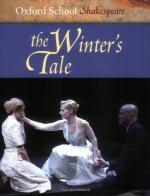Shepherd.
My business, sir, is to the king.
Autolycus.
What advocate hast thou to him?
Shepherd.
I know not, an’t like you.
Clown.
Advocate’s the court-word for a pheasant; say
you have none.
Shepherd.
None, sir; I have no pheasant, cock nor hen.
Autolycus.
How bless’d are we that are not simple men!
Yet nature might have made me as these are,
Therefore I will not disdain.
Clown.
This cannot be but a great courtier.
Shepherd.
His garments are rich, but he wears them not handsomely.
Clown.
He seems to be the more noble in being fantastical:
a great man,
I’ll warrant; I know by the picking on’s
teeth.
Autolycus.
The fardel there? what’s i’ the fardel?
Wherefore that box?
Shepherd. Sir, there lies such secrets in this fardel and box which none must know but the king; and which he shall know within this hour, if I may come to the speech of him.
Autolycus.
Age, thou hast lost thy labour.
Shepherd.
Why, sir?
Autolycus. The king is not at the palace; he is gone aboard a new ship to purge melancholy and air himself: for, if thou beest capable of things serious, thou must know the king is full of grief.
Shepherd.
So ’tis said, sir,—about his son,
that should have married a
shepherd’s daughter.
Autolycus. If that shepherd be not in hand-fast, let him fly: the curses he shall have, the tortures he shall feel, will break the back of man, the heart of monster.
Clown.
Think you so, sir?
Autolycus. Not he alone shall suffer what wit can make heavy and vengeance bitter; but those that are germane to him, though removed fifty times, shall all come under the hangman: which, though it be great pity, yet it is necessary. An old sheep-whistling rogue, a ram-tender, to offer to have his daughter come into grace! Some say he shall be stoned; but that death is too soft for him, say I. Draw our throne into a sheep-cote!—all deaths are too few, the sharpest too easy.
Clown.
Has the old man e’er a son, sir, do you hear,
an’t like you, sir?
Autolycus. He has a son,—who shall be flayed alive; then ’nointed over with honey, set on the head of a wasp’s nest; then stand till he be three quarters and a dram dead; then recovered again with aqua-vitae or some other hot infusion; then, raw as he is, and in the hottest day prognostication proclaims, shall he be set against a brick wall, the sun looking with a southward eye upon him,—where he is to behold him with flies blown to death. But what talk we of these traitorly rascals, whose miseries are to be smiled at, their offences being so capital? Tell me,—for you seem to be honest plain men,—what you have to the king: being something gently considered, I’ll bring you where he is aboard, tender your persons to his presence, whisper him in your behalfs; and if it be in man besides the king to effect your suits, here is man shall do it.




